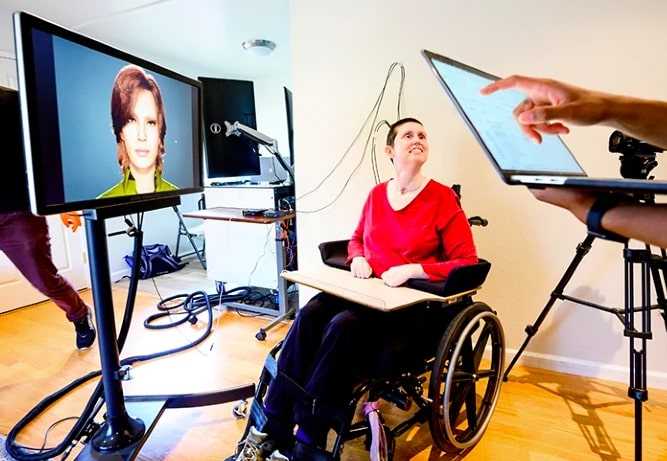Brain implants are pretty cool

Image: Noah Berger
The secrets of mind reading could soon become available to the world – no more gatekeeping from psychics and Professor X.
Brain-reading implants combined with AI algorithms have enabled two people with paralysis to communicate with unprecedented accuracy and speed, according to a pair of separate peer-reviewed studies published simultaneously last week in Nature.
In the studies, two teams – one led by researchers from Stanford University and the other led by scientists from UC San Francisco – used brain-computer interfaces (BCIs) that measure patients’ brain signals when they attempt to speak, then used AI to translate those signals into text or words spoken by a synthetic voice.
- The two BCIs were able to decode speech at 62 words/minute and 78 words/minute – slower than normal conversation (~160 words/minute), but faster than any previous attempts at brainwave translation.
- And while earlier versions of BCI technology could only interpret a few hundred words, the Stanford team’s algorithm can decipher up to 125,000 words, the equivalent of a small dictionary.
👀 Looking ahead… It’ll take at least a few more years before doctors will be able to prescribe such treatments for patients. The studies’ authors say a handful of improvements are still needed before their BCIs can be approved for wider use.
Share this!
Recent Science & Emerging Tech stories

Science & Emerging Tech
| August 29, 2023"Quiet" supersonic passenger flights are one step closer to becoming a reality
🛫 For those of you who’ve dreamt of having dinner in NYC and dessert in Paris (or vice versa), NASA has you covered. The space agency is currently developing a “quiet” supersonic aircraft up to 5x faster than current passenger jets.

Science & Emerging Tech
| August 28, 2023Earth has a growing space junk problem
🛰️💥 A piece of space debris targeted for cleanup in 2026 was recently Hulk-smashed into pieces by another piece of space debris. And, in addition to being rather ironic, this example of debris-on-debris crime highlights a growing problem – orbiting space junk left over from past launches and missions.

Science & Emerging Tech
| August 22, 2023The global shipping industry is going back to the future
You've made it this far...
Let's make our relationship official, no 💍 or elaborate proposal required. Learn and stay entertained, for free.👇
All of our news is 100% free and you can unsubscribe anytime; the quiz takes ~10 seconds to complete